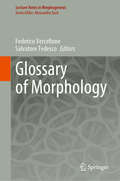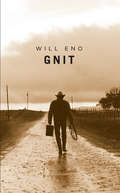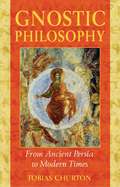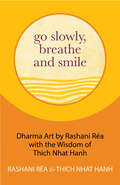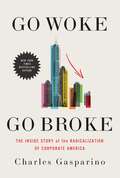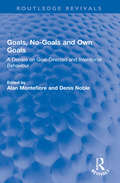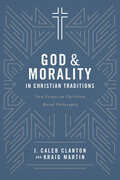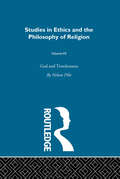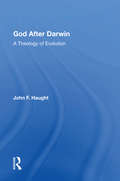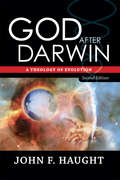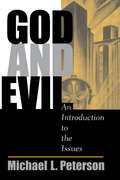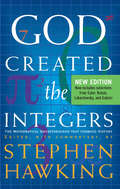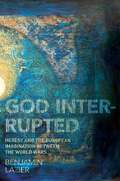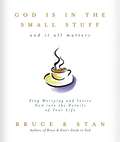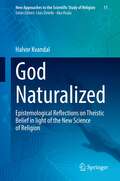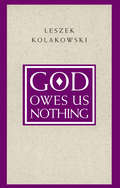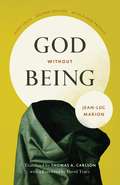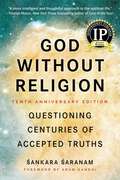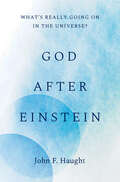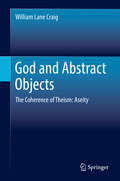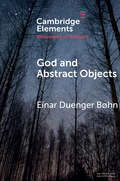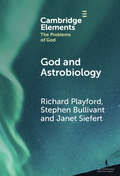- Table View
- List View
Glossary of Morphology (Lecture Notes in Morphogenesis)
by Federico Vercellone Salvatore TedescoThis book is a significant novelty in the scientific and editorial landscape. Morphology is both an ancient and a new discipline that rests on Goethe's heritage and re-forms it in the present through the concepts of form and image. The latter are to be understood as structural elements of a new cultural grammar able to make the late modern world intelligible. In particular, compared to the original Goethean project, but also to C.P. Snow's idea of unifying the “two cultures”, the fields of morphological culture that are the object of this glossary have profoundly changed. The ever-increasing importance of the image as a polysemic form has made the two concepts absolutely transitive, so to speak. This is concomitant with the emergence of a culture that revolves around the image, attracting the verbal logos into its orbit. Incidentally, even the hermeneutic relationship between past and present relies more and more on the image, causing deep changes in cultural environments. Form and image are not just bridging concepts, as in the field of ancient morphology, but real transitive concepts that define the state of a culture. From the Internet to smartphones, television, advertising, etc., we are witnessing – as Horst Bredekamp observes – an immense mass of images that fill our time and affect the most diverse areas of our culture. The ancient connection between science and art recalled by Goethe emerges with unusual evidence thanks to intersecting patterns and expressive forms that are sometimes shared by different forms of knowledge. Creating a glossary and a culture of these intersections is the task of morphology, which thus enters into the boundaries between aesthetics, art, design, advertising, and sciences (from mathematics to computer science, to physics, and to biology), in order to provide the founding elements of a grammar and a syntax of the image. The latter, in its formal quality, both expressive and symbolic, is a fundamental element in the unification of the various kinds of knowledge, which in turn come to be configured, in this regard, also as styles of vision. The glossary is subdivided into contiguous sections, within a complex framework of cross-references. In addition to the two curators, the book features the collaboration of a team of scholars from the individual disciplines appearing in the glossary.
Gnit
by Will Eno"The marvel of Mr. Eno's new version is how closely it tracks the original while also being of the very moment and an unmistakably Will Eno play. After climbing the craggy peaks of Ibsen's daunting play, Mr. Eno has brought down from its dizzying heights a surprising crowd-pleasing (if still strange) work." - Charles Isherwood, New York Times"Gnit is classic Will Eno. By that I mean I was thrilled by it." - TimeOut Chicago"If ever a play made me want to be a better person, this is it." - Bob Fischbach, Omaha World-HeraldPeter Gnit, a funny enough, but so-so specimen of humanity, makes a lifetime of bad decisions on the search for his True Self. This is a rollicking yet cautionary tale about (among other things) how the opposite of love is laziness. Gnit is a faithful, unfaithful and willfully American misreading of Henrik Ibsen's Peer Gynt (a nineteenth-century Norwegian play), written by Will Eno, who has never been to Norway.Will Eno's most recent plays include The Open House (Signature Theatre, New York, 2014; Obie Award, Lucille Lortel Award for Best Play) and The Realistic Joneses (Yale Repertory Theatre, New Haven, 2012; Broadway, 2014). His play Middletown received the Horton Foote Prize and Thom Pain (based on nothing) was a finalist for the 2005 Pulitzer Prize. Mr. Eno lives Brooklyn.
Gnostic Philosophy: From Ancient Persia to Modern Times
by Tobias ChurtonAn extensive examination of the history of gnosticism and how its philosophy has influenced the Western esoteric tradition • Explains how the Gnostic understanding of self-realization is embodied in the esoteric traditions of the Rosicrucians and Freemasons • Explores how gnosticism continues to influence contemporary spirituality• Shows gnosticism to be a philosophical key that helps spiritual seekers "remember" their higher selvesGnosticism was a contemporary of early Christianity, and its demise can be traced to Christianity's efforts to silence its teachings. The Gnostic message, however, was not destroyed but simply went underground. Starting with the first emergence of Gnosticism, the author shows how its influence extended from the teachings of neo-Platonists and the magical traditions of the Middle Ages to the beliefs and ideas of the Sufis, Jacob Böhme, Carl Jung, Rudolf Steiner, and the Rosicrucians and Freemasons. In the language of spiritual freemasonry, gnosis is the rejected stone necessary for the completion of the Temple, a Temple of a new cosmic understanding that today's heirs to Gnosticism continue to strive to create.The Gnostics believed that the universe embodies a ceaseless contest between opposing principles. Terrestrial life exhibits the struggle between good and evil, life and death, beauty and ugliness, and enlightenment and ignorance: gnosis and agnosis. The very nature of physical space and time are obstacles to humanity's ability to remember its divine origins and recover its original unity with God. Thus the preeminent gnostic secret is that we are God in potential and the purpose of bona fide gnostic teaching is to return us to our godlike nature.Tobias Churton is a filmmaker and the founding editor of the magazine Freemasonry Today. He studied theology at Oxford University and created the award-winning documentary series and accompanying book The Gnostics, as well as several other films on Christian doctrine, mysticism, and magical folklore. He lives in England.
Go Slowly, Breathe and Smile: Dharma Art by Rashani Réa with the Wisdom of Thich Nhat Hanh
by Thich Nhat Hanh Rashani RéaA Book of Mindfulness, Kindfulness, and Words of Wisdom“Rashani’s extraordinary collages perfectly mirror Thich Nhat Hanh’s simple yet powerful teachings. An exquisite collection.” —James Baraz, author of Awakening Joy#1 New Release in Zen Philosophy, Stress Management, Meditation, and Mental & Spiritual HealingThich Nhat is a spiritual luminary, second only to the Dalai Lama, and is globally renowned and admired. His words of wisdom are centralized in finding peace in every moment; whether you’re stopped at a red light or answering a phone, mindfulness grounds you into the present moment.Start your day with these peaceful, empowering words of wisdom. All of these words are interwoven with meditative, inspiring images of celebration. Each page is designed to increase positive thinking and improve your mental health.Life-changing mindful meditations. Strengthen your mindset with these empowering words of wisdom that are referenced as essential advice for how to grow spirituality and mentally strong. Meditation practices are essential to building mindfulness.Go Slowly, Breathe and Smile is a unique convergence of wisdom and art, a beautiful tribute from a dedicated student to her teacher. Absorb Thich Nhat Hanh's words of wisdom and meditate on Rashani Réa's inspirational collages, and allow these pages to illuminate your heart and mind, inspire mindfulness, and reduce stress levels.Read Go Slowly, Breathe, and Smile and find:Encouraging words of advice from the Wisest Monk Thich Nhat HanhWords of wisdom to thrive in the mind and bodyBeautiful art by social activist Rashani RéaLife lessons and tools for mindful meditationsThich Nhat Hanh’s other books include the bestselling Peace Is Every Step; No Mud, No Lotus; and How to Love. Rashani Réa's other books include Nurses Cry Too and The Threshold Between Loss and Revelation. If you liked The Heart of the Buddha's Teaching, or The Miracle of Mindfulness, you’ll love Go Slowly, Breathe and Smile.
Go Woke, Go Broke: The Inside Story of the Radicalization of Corporate America
by Charles GasparinoA New York Times bestselling author and veteran Fox Business financial journalist&’s explosive deep-dive into the progressive madness that has infected and corrupted the world&’s biggest corporations, threatening the stability of the global economy—and life as we know it. How did a bunch of rich dudes who run corporate America become the tools of left-wing radicals? Intimidated by activists on the left, virtually every major corporation in America has embraced woke politics. For years, these businesses could get away with progressive virtual signaling without worrying about alienating customers. Then the anti-woke counter-offensive movement arrived. As high-profile, disastrous backlashes at companies like Anheuser-Busch, Disney, Target and other companies reveal, companies who cave to the demands of left-wing social justice activists are being punished like never before. Customers are fighting back and taking their money elsewhere. In Go Woke, Go Broke, New York Times bestselling author and veteran financial journalist Charles Gasparino calls out the nonsense and takes readers inside the radicalization of corporate America, based on numerous insider interviews and exclusive reporting. The story is wilder than you can imagine. Gasparino introduces readers to America&’s most woke corporate leaders, tracing the origins of ESG and "stakeholder investing.&” He takes readers along on for a rollicking ride through corporate America as he shines a light, unlike anyone else, on Fortune 500 companies that have suffered for caving to the silly and irresponsible demands of social justice activists and left-wing interests. A respected financial reporter who has covered finance for more than 30 years, Gasparino is deeply sourced and has dug into countless episodes involving Wall Street greed, corporate hubris, and government overreach in enterprise. This explosive, untold story and in-depth examination of the seminal players, institutions, and forces of the markets shows that, for the sake of global stability, we must immediately pry the clenched fists of radical activists off the levers of the economy.
Goal-Based Reasoning for Argumentation
by Douglas WaltonThis book provides an argumentation model for means end-reasoning, a distinctive type of reasoning used for problem-solving and decision-making. Means end-reasoning is modelled as goal-directed argumentation from an agent's goals and known circumstances, and from an action selected as a means, to a decision to carry out the action. Goal-based Reasoning for Argumentation provides an argumentation model of this kind of reasoning showing how it is employed in settings of intelligent deliberation where agents try to collectively arrive at a conclusion on what they should do to move forward in a set of circumstances. The book explains how this argumentation model can help build more realistic computational systems of deliberation and decision-making, and shows how such systems can be applied to solve problems posed by goal-based reasoning in numerous fields, from social psychology and sociology, to law, political science, anthropology, cognitive science, artificial intelligence, multi-agent systems, and robotics.
Goals, No-Goals and Own Goals: A Debate on Goal-Directed and Intentional Behaviour (Routledge Revivals)
by Alan Montefiore; Denis NobleFirst published in 1989, Goals, No-Goals and Own Goals presents a stimulating debate between three scientists and three philosophers about the significance and nature of goal-directed and intentional behaviour. At one extreme David McFarland brings into radical question the need for either of these concepts, at least in the scientific study of animal behaviour. At the other extreme, Alan Montefiore argues that such concepts are indispensable to any explication of the meaningful use of language and that we must therefore acknowledge their importance in understanding the nature of human behaviour. Denis Noble uses arguments drawn from computer science and physiology to show that it is incorrect to regard intentions as causes of neural events, even though it is correct to regard intentionality as responsible for our actions. Shawn Lockery outlines how intentional behaviour might be subjected to physiological study. Kathy Wilkes widens the debate by asking some basic questions about the nature of explanation and finally, Daniel Dennett argues how the study of animal behaviour might inform research in Artificial Intelligence. This book will be a useful resource for scholars and researchers of cognitive science, philosophy, psychology, linguistics and physiology.
Gobierno: Attacracia
by Kwasi AttaEste libro trata de un tipo de Gobierno prescrito por Dios. Es preferible a la democracia y a todos los otros tipos de gobierno que el mundo ha experimentado. Fue rechazado por el pueblo de Israel porque eligió copiar a las naciones de su entorno. Este libro analiza sus características, ventajas, desventajas y cómo superarlas. El libro también analiza si se puede practicar hoy en día o no.
God & Morality in Christian Traditions: New Essays on Christian Moral Philosophy
by J. Caleb Clanton Kraig MartinChristianity presumes morality is connected in important ways to God.God & Morality in Christian Traditions explores a wide range of philosophical issues related to that connection, including the metaphysical foundations of morality, the Fall and its implications, and how faith can affect one’s ability to discern obligations. Also included is a robust treatment of how vice and virtue shape one’s ethical life, as well as a timely discussion of how people―both Christians and non-Christians―can address deep moral disagreement in a pluralistic society. Drawing on Catholic, Protestant, and free church traditions, this volume highlights perspectives drawn from the natural law tradition, divine command theory, and virtue ethics, among other theoretical frameworks. Along the way, the authors provide salient insights on metaethics, moral epistemology, character development, and applied ethics. Scholars and students in Christian ethics, philosophy, and theology will benefit from this carefully edited and rigorously argued collection of essays.
God & Timelessness Vol 7 (Studies In Ethics And The Philosophy Of Religion)
by Nelson PikeFirst published in 2003. This is volume VII in the IX-volume set titled Studies in Ethics and the Philosophy of Religion. The series is meant to provide an opportunity for philosophical discussions of a limited length which pursue in some detail specific topics in ethics or the philosophy of religion, or topics which belong to both fields. This volume discusses timelessness, the predicate 'timeless' in relation to God, power and two doctrines.
God After Darwin 1E: A Theology Of Evolution
by John HaughtArgues that both evolutionism and creationism rely too heavily on notions of underlying order and design. Instead of focusing on the idea of novelty in human experience novelty as a necessary component of evolution, and as the essence of divine Mystery.. In God After Darwin , John Haught argues that the ongoing debate between Darwinian evolutionists and Christian apologists is fundamentally misdirected: both sides persist in focusing upon an explanation of underlying design and order in the universe. Haught suggests that what is lacking in both of these competing ideologies is the notion of novelty, a necessary component of evolution and the essence of the unfolding of divine Mystery. He argues that Darwin’s disturbing picture of life, instead of being hostile to religion - as scientific skeptics and many believers have thought it to be - actually provides a most fertile setting for mature reflection on the idea of God. Solidly grounded in scholarship, Haught’s explanation of the relationship between theology and evolution is both accessible and engaging.
God After Darwin: A Theology of Evolution
by John F. HaughtIn God After Darwin, eminent theologian John F. Haught argues that the ongoing debate between Darwinian evolutionists and Christian apologists is fundamentally misdirected: Both sides persist in focusing on an explanation of underlying design and order in the universe. Haught suggests that what is lacking in both of these competing ideologies is the notion of novelty, a necessary component of evolution and the essence of the unfolding of the divine mystery. He argues that Darwin's disturbing picture of life, instead of being hostile to religion-as scientific skeptics and many believers have thought it to be-actually provides a most fertile setting for mature reflection on the idea of God. Solidly grounded in scholarship, Haught's explanation of the relationship between theology and evolution is both accessible and engaging. The second edition of God After Darwin features an entirely new chapter on the ongoing, controversial debate between intelligent design and evolution, including an assessment of Haught's experience as an expert witness in the landmark case of Kitzmiller v. Dover Area School District on teaching evolution and intelligent design in schools.
God And Evil: An Introduction To The Issues
by Michael L PetersonThis concise, well-structured survey examines the problem of evil in the context of the philosophy of religion. The main problem of evil consists in reconciling belief in a just and loving God with the evil and suffering in the world. Michael Peterson frames this issue by working through questions such as the following: What is the relation of rational belief to religious faith? What different conceptual moves are possible on either side of the issue? What responses have important thinkers advanced and which seem most promising? Is it possible to maintain religious commitment in light of evil? The author relies on the helpful distinction between moral and natural evil to clarify our understanding of the different aspects of the problem as well as avenues for response. Thus, the reader of this book gains not only an intellectual grasp of the debate over God and evil in professional philosophy but also the personal benefit of thinking through one of the most important issues in human life. }This concise, well-structured survey examines the problem of evil in the context of the philosophy of religion. One of the core topics in that field, the problem of evil is an enduring challenge that Western philosophers have pondered for almost two thousand years. The main problem of evil consists in reconciling belief in a just and loving God with the evil and suffering in the world. Michael Peterson frames this issue by working through questions such as the following: What is the relation of rational belief to religious faith? What different conceptual moves are possible on either side of the issue? What responses have important thinkers advanced and which seem most promising? Is it possible to maintain religious commitment in light of evil? Peterson relies on the helpful distinction between moral and natural evil to clarify our understanding of the different aspects of the problem as well as avenues for response. The overall format of the text rests on classifying various types of argument from evil: the logical, the probabilistic, the evidential, and the existential arguments. Each type of argument has its own strategy which both theists and nontheists must recognize and develop. Giving both theistic and nontheistic perspectives fair representation, the text works through the issues of whether evil shows theistic belief to be inconsistent, improbable, discredited by the evidence, or threatened by personal crisis.Peterson explains how defensive strategies are particularly geared for responding to the logical and probabilistic arguments from evil while theodicy is an appropriate response to the evidential argument. Theodicy has traditionally been understood as the attempt to justify belief in a God who is all-powerful and all-good in light of evil. The text discusses the theodicies of Augustine, Leibniz, Hick, and Whitehead as enlightening examples of theodicy. This discussion allows Peterson to identify and evaluate a rather dominant theme in most theodicies: that evil can be justified by designating a greater good. In the end, Peterson even explores how certain types of theodicy, based on specifically Christian renditions of theism, might provide a basis for addressing the existential problem of evil. The reader of this book gains not only an intellectual grasp of the debate over God and evil in professional philosophy but also the personal benefit of thinking through one of the most important issues in human life. }
God Created the Integers: The Mathematical Breakthroughs that Changed History
by Stephen HawkingBestselling author and physicist Stephen Hawking explores the masterpieces of mathematics, 25 landmarks spanning 2,500 years and representing the work of 15 mathematicians. "
God Interrupted: Heresy and the European Imagination between the World Wars
by Benjamin LazierCould the best thing about religion be the heresies it spawns? Leading intellectuals in interwar Europe thought so. They believed that they lived in a world made derelict by God's absence and the interruption of his call. In response, they helped resurrect gnosticism and pantheism, the two most potent challenges to the monotheistic tradition. In God Interrupted, Benjamin Lazier tracks the ensuing debates about the divine across confessions and disciplines. He also traces the surprising afterlives of these debates in postwar arguments about the environment, neoconservative politics, and heretical forms of Jewish identity. In lively, elegant prose, the book reorients the intellectual history of the era. God Interrupted also provides novel accounts of three German-Jewish thinkers whose ideas, seminal to fields typically regarded as wildly unrelated, had common origins in debates about heresy between the wars. Hans Jonas developed a philosophy of biology that inspired European Greens and bioethicists the world over. Leo Strauss became one of the most important and controversial political theorists of the twentieth century. Gershom Scholem, the eminent scholar of religion, radically recast what it means to be a Jew. Together they help us see how talk about God was adapted for talk about nature, politics, technology, and art. They alert us to the abiding salience of the divine to Europeans between the wars and beyond--even among those for whom God was long missing or dead.
God Is in the Small Stuff and It All Matters
by Bruce Bickel Stan JantzBruce and Stan's newest book encourages readers not to disregard the minor, insignificant things in life. Rather, "God Is in the Small Stuff..." encourages a better understanding of God's infinite character, reminding readers that He is a personal and intimate God, involved in every detail of their lives, however minute. "God Is In the Small Stuff... and it all matters" contains 40 chapters, with titles such as "Remember that God Loves You," "Discipline Yourself (No One Else Will)," and "Contentment Won't Kill You." Each chapter includes an introductory commentary in the tongue-in-cheek Bruce & Stan style, followed by bits of pithy and sometimes humorous wisdom.
God Naturalized: Epistemological Reflections on Theistic Belief in light of the New Science of Religion (New Approaches to the Scientific Study of Religion #11)
by Halvor KvandalThis volume argues that theistic philosophy should be seen not as an “armchair” enterprise but rather as a critical endeavor to bring philosophy of religion into close contact with emerging sciences of religion. This text engages with the rationality of religious belief by investigating central problems and arguments in philosophy of religion from the perspective of new naturalistic research. A central question the book analyzes is whether findings in cognitive science of religion (CSR) falsify or undermine religious ideas and beliefs. With regard to CSR, this volume offers a sustained and critical investigation of the neutrality and positive-relevance view, before offering a re-appraisal of the conflict view. The text argues that when scrutinizing these views, much more attention must be paid to specific normative premises that allow empirical findings to have epistemic relevance. A novel feature is the theoretical application of analytical epistemology in virtue-epistemology to the central question of whether CSR undermines, supports, or is neutral with respect to religious belief. This book appeals to upper-level students and researchers in the field.
God Owes Us Nothing: A Brief Remark on Pascal's Religion and on the Spirit of Jansenism
by Leszek KolakowskiGod Owes Us Nothing reflects on the centuries-long debate in Christianity: how do we reconcile the existence of evil in the world with the goodness of an omnipotent God, and how does God's omnipotence relate to people's responsibility for their own salvation or damnation. Leszek Kolakowski approaches this paradox as both an exercise in theology and in revisionist Christian history based on philosophical analysis. Kolakowski's unorthodox interpretation of the history of modern Christianity provokes renewed discussion about the historical, intellectual, and cultural omnipotence of neo-Augustinianism. "Several books a year wrestle with that hoary conundrum, but few so dazzlingly as the Polish philosopher's latest."—Carlin Romano, Washington Post Book World "Kolakowski's fascinating book and its debatable thesis raise intriguing historical and theological questions well worth pursuing."—Stephen J. Duffy, Theological Studies "Kolakowski's elegant meditation is a masterpiece of cultural and religious criticism."—Henry Carrigan, Cleveland Plain Dealer
God Without Being
by Jean-Luc MarionJean-Luc Marion is one of the world's foremost philosophers of religion as well as one of the leading Catholic thinkers of modern times. In God Without Being, Marion challenges a fundamental premise of traditional philosophy, theology, and metaphysics: that God, before all else, must be. Taking a characteristically postmodern stance and engaging in passionate dialogue with Heidegger, he locates a "God without Being" in the realm of agape, or Christian charity and love. If God is love, Marion contends, then God loves before he actually is. First translated into English in 1991, God Without Being continues to be a key book for discussions of the nature of God. This second edition contains a new preface by Marion as well as his 2003 essay on Thomas Aquinas. Offering a controversial, contemporary perspective, God Without Being will remain essential reading for scholars and students of philosophy and religion. "Daring and profound. . . . In matters most central to his thesis, [Marion]'s control is admirable, and his attunement to the nuances of other major postmodern thinkers is impressive. "--Theological Studies "A truly remarkable work. "--First Things "Very rewarding reading. "--Religious Studies Review
God Without Being: Hors-Texte, Second Edition (Religion and Postmodernism)
by Thomas A. Carlson Jean-Luc Marion David TracyJean-Luc Marion is one of the world’s foremost philosophers of religion as well as one of the leading Catholic thinkers of modern times. In God Without Being, Marion challenges a fundamental premise of traditional philosophy, theology, and metaphysics: that God, before all else, must be. Taking a characteristically postmodern stance and engaging in passionate dialogue with Heidegger, he locates a “God without Being” in the realm of agape, or Christian charity and love. If God is love, Marion contends, then God loves before he actually is. First translated into English in 1991, God Without Being continues to be a key book for discussions of the nature of God. This second edition contains a new preface by Marion as well as his 2003 essay on Thomas Aquinas. Offering a controversial, contemporary perspective, God Without Being will remain essential reading for scholars and students of philosophy and religion. “Daring and profound. . . . In matters most central to his thesis, [Marion]’s control is admirable, and his attunement to the nuances of other major postmodern thinkers is impressive.”—Theological Studies “A truly remarkable work.”—First Things “Very rewarding reading.”—Religious Studies Review
God Without Religion: Questioning Centuries of Accepted Truths
by Sankara SaranamSince Sankara Saranam's groundbreaking book God Without Religion was released 10 years ago, thousands have been enlightened by his teachings and revelations. Now, in this special 10-year anniversary edition, Sankara returns with new insights and a renewed message of spiritual guidance and inspiration. Disillusioned with organized religion, millions of people turn to secular humanism, neo-atheism, New Age thinking, Eastern religious practices, and mysticism while others retreat from spirituality altogether. A more satisfying and transformative option is to embark on a quest to discover what is real to you. Using time-tested tools of investigation into your own sense of self, you can examine your present beliefs, explore the nature of reality, and ultimately expand your identity and awareness. God Without Religion introduces this age-old approach to self-inquiry for today's readers. Step by step, it offers a bridge between organized religion and self-realization for anyone questioning traditional dogma or its legacy of divisiveness. It also assists in overcoming limitations and notions of exclusivity promoted by modern-day movements. Included are 17 universal techniques for developing a personal understanding of the underlying substance of existence and broadening your view of yourself, others, and all of life. This updated edition includes new details about Sankara's personal experiences with each technique. These highly relatable new passages will help you connect with each concept in a personal way, so that you can discover—or rediscover—your own spiritual path to clarity.
God after Einstein: What's Really Going On in the Universe?
by John F. HaughtA leading theologian presents a hopeful account of the universe after Einstein, exploring it as a meaningful drama of awakening&“This book is a deep and provocative piece of theology that proposes we engage with the universe as a kind of narrative of awakening and unfolding, as well as an important and useful approach for thinking about theology with respect to modern cosmology.&”—Matthew Stanley, New York University Before the early twentieth century, scientists and theologians knew almost nothing about time&’s enormity and the corresponding immensity of space. But now, after Einstein, cosmology offers theology a whole new way of looking at the ageless questions about matter, time, God, cosmic purpose, and the significance of our lives. The universe need not be thought of as simply an endless reshuffling of lifeless and mindless atoms in a pointless series of moments. Rather, the universe is a temporal drama of awakening whose meaning can be revealed only gradually by looking, in a spirit of anticipation and hope, toward the horizon of the cosmic future. In conversation with Einstein&’s ideas and opinions, John F. Haught develops here a new cosmological understanding of the meaning of God, time, eternity, mystery, life, thought, freedom, and faith. In doing so, he offers readers a new way of understanding the relationship of science to theology.
God and Abstract Objects
by William Lane CraigThis book is an exploration and defense of the coherence of classical theism's doctrine of divine aseity in the face of the challenge posed by Platonism with respect to abstract objects. A synoptic work in analytic philosophy of religion, the book engages discussions in philosophy of mathematics, philosophy of language, metaphysics, and metaontology. It addresses absolute creationism, non-Platonic realism, fictionalism, neutralism, and alternative logics and semantics, among other topics. The book offers a helpful taxonomy of the wide range of options available to the classical theist for dealing with the challenge of Platonism. It probes in detail the diverse views on the reality of abstract objects and their compatibility with classical theism. It contains a most thorough discussion, rooted in careful exegesis, of the biblical and patristic basis of the doctrine of divine aseity. Finally, it challenges the influential Quinean metaontological theses concerning the way in which we make ontological commitments.
God and Abstract Objects (Elements in the Philosophy of Religion)
by Einar Duenger BøhnSome believe that there is a God who is the source of all things; and some believe that there are necessarily existing abstract objects. But can one believe both these things? That is the question of this Element. First, Einar Duenger Bøhn clarifies the concepts involved, and the problem that arises from believing in both God and abstract objects. Second, he presents and discusses the possible kinds of solutions to that problem. Third, Bøhn discusses a new kind of solution to the problem, according to which reality is most fundamentally made of information.
God and Astrobiology (Elements in the Problems of God)
by Richard Playford Stephen Bullivant Janet SiefertThe perception that life on other planets would be, problematic for religious people, and indeed for religion itself, is a longstanding one. It is partially rooted in fact: astrobiological speculations have, on occasion, engendered religious controversies. Historical discussions are often far more nuanced, and less one-sided than often imagined. 'Exotheology' is a lively subdiscipline within several religious traditions. This Element offers a wide-ranging introduction to the multifarious 'problems of God and astrobiology', real and perceived. It covers major topics within Christian theology (e.g., creation, incarnation, salvation), as well as issues specific to Judaism, Islam, Buddhism, and Hinduism. It also discusses the very different perspectives offered by other (non)religious traditions, including Mormonism, various 'alien-positive' new religious movements (e.g., Heaven's Gate, Scientology, Raëlism), and the 'Ancient Astronaunt' theories popularized by Erich von Dāniken and the History channel's Ancient Aliens.
